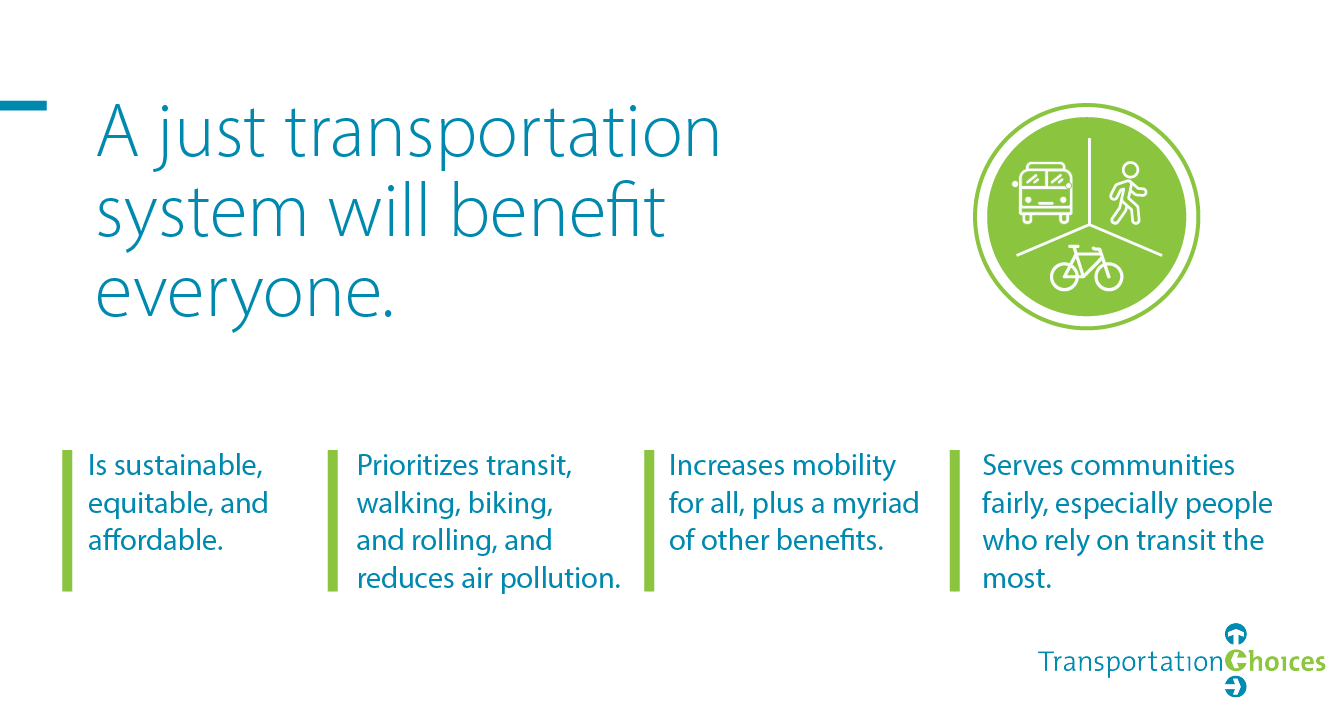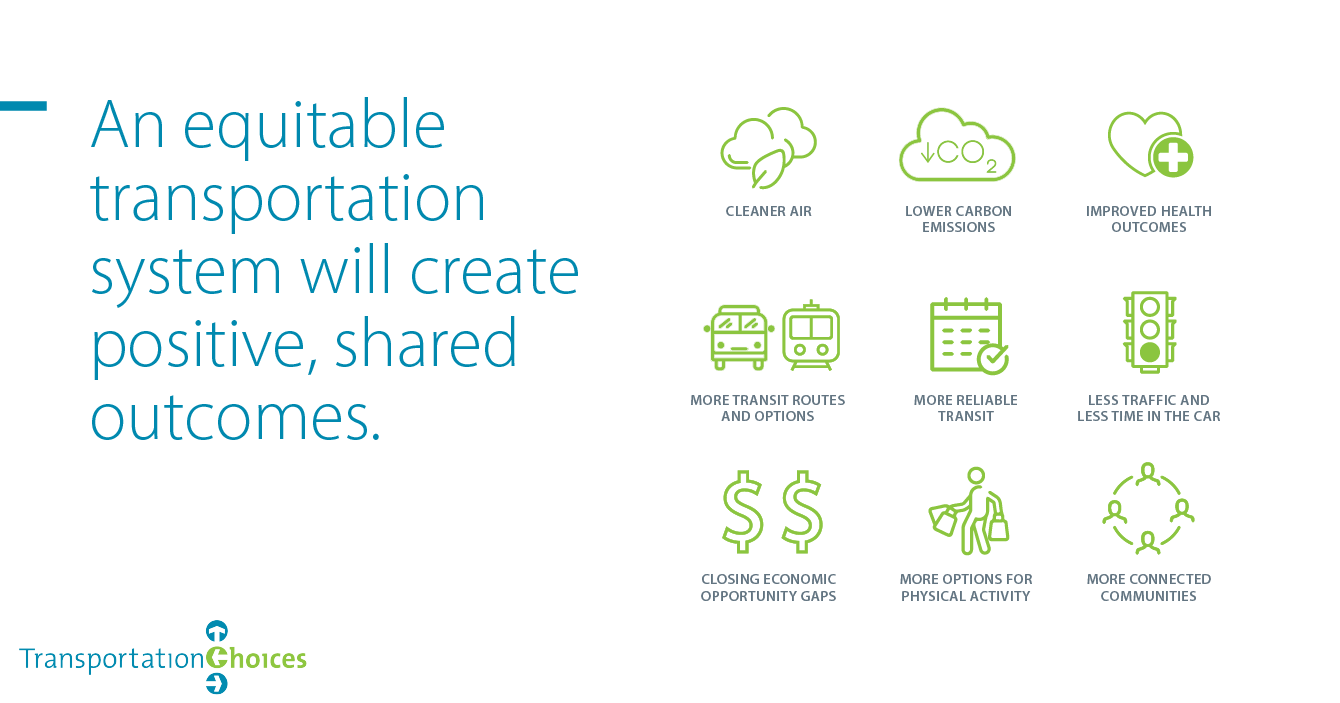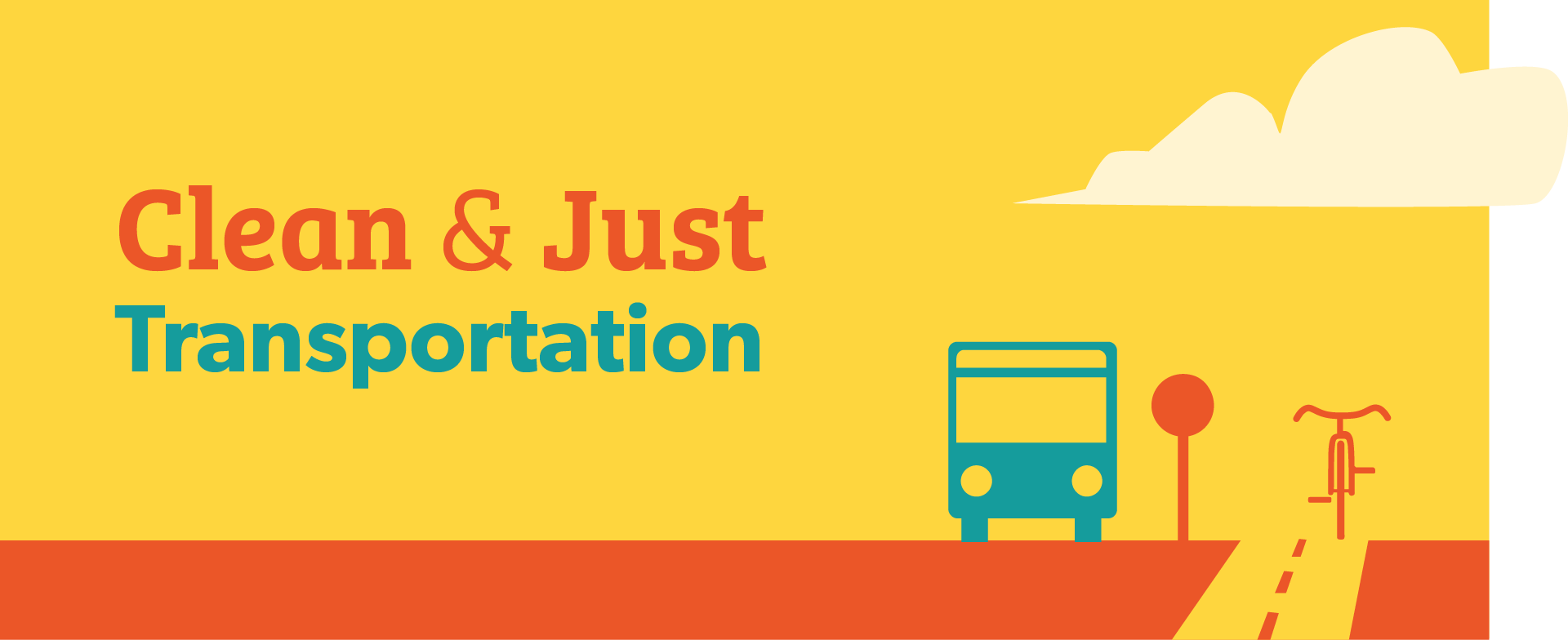
Our current transportation system is not working.
Washington’s transportation funding system is inadequate, inflexible, and inherently inequitable, drawing primarily from regressive funding sources that overburden residents with low incomes. It doesn’t prioritize enough affordable or reliable transit options, especially for people who have been pushed out of urban centers. The resulting pollution and poor air quality harm all communities, and disproportionately Black, Indigenous, and other communities of color.
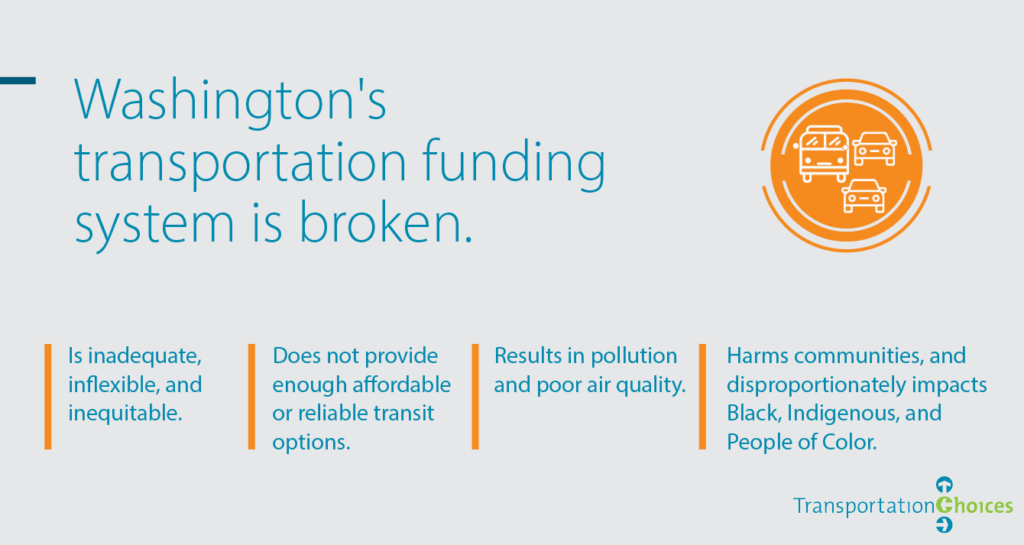
On the whole, these revenue streams are regressive, volatile, inadequate, and restrictive—and hold us back from building a modern transportation system that works for everyone.
Our current transportation system creates unequal and adverse outcomes.
The way we fund transportation is the root cause of the disproportionate impacts we see today:
- Air pollution
- Carbon emissions and climate change
- Harmful health impacts like asthma
- Limited transit options
- Unreliable bus schedules
- Time wasted in traffic
- Inequitable access to opportunity
- Limited biking and walking infrastructure
- Less connected communities
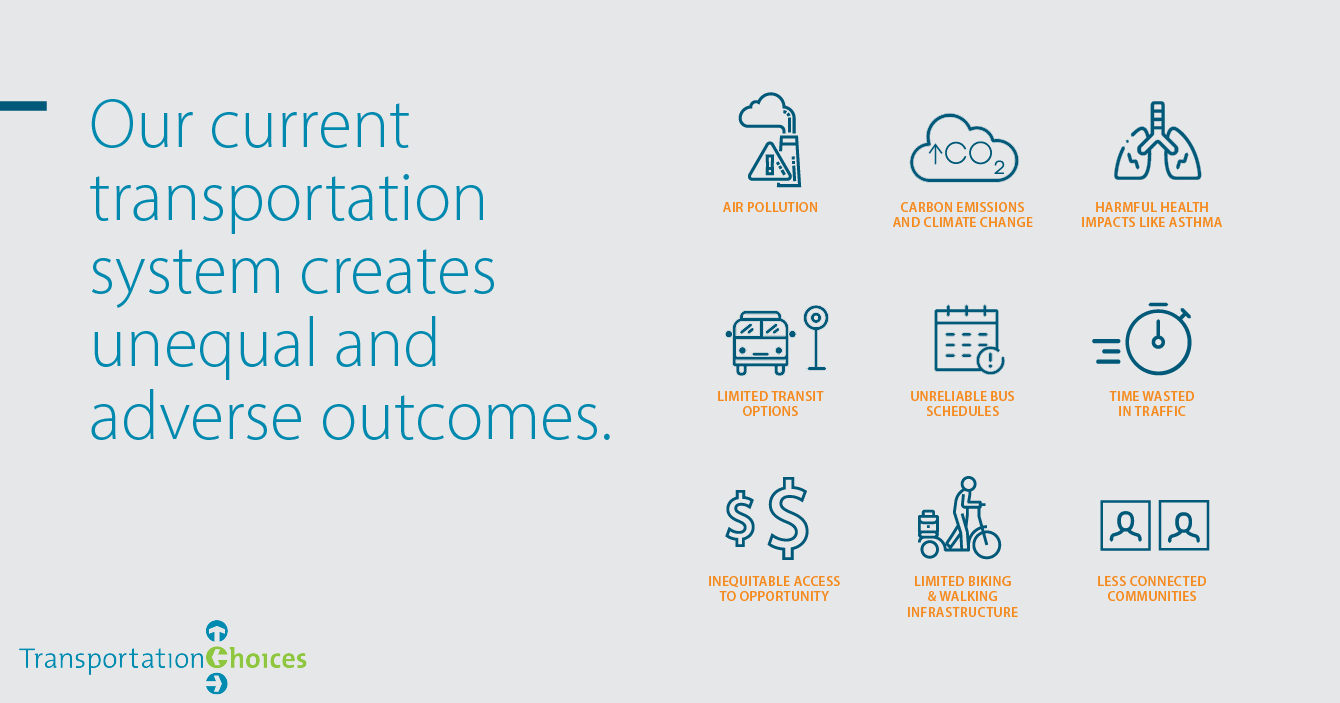
Let’s build a transportation system that can work for everyone.
If we want to change our transportation system for the better, we must change the way we fund it.
An equitable, sustainable transportation system that prioritizes transit, walking, biking, and rolling will serve communities fairly and contribute to an overall healthier society. It will bring us closer to our collective goals of reducing greenhouse gas emissions and air pollution, improving mobility, and ensuring everyone shares in health, economic, and social benefits.
We can fund a clean and just transportation system.
To build a just, affordable, and reliable transportation system, we need to fund it with progressive, sustainable, sufficient, and flexible revenue streams. These funding streams could take many forms and be developed in partnership with the communities they serve. Potential tools include a road usage charge, road pricing, carbon pricing, air quality surcharge, expanded local revenue options, or more multimodal funding in the state transportation budget.
An equitable system will create positive, shared outcomes:
- Cleaner air
- Lower carbon emissions
- Improved health outcomes
- More transit routes and options
- More reliable transit
- Less traffic and less time in the car
- Closing economic opportunity gaps
- More options for physical activity
- More connected communities
By changing the way we fund transportation, we have the ability to better serve communities and our planet.
How you can help.
The legislature is debating how to spend up to $26 billion in transportation investments during the 2021 legislative session. After decades of unfettered highway expansion, we must ensure that Washington’s next transportation package invests in a cleaner and more equitable system for all; one that increases access to opportunity, improves community health and reduces traffic and pollution.
A Clean and Just Transportation package:
- Invests in structural equity, by directing at least 35% of investments to communities that have been highly impacted by the transportation system and transportation pollution
- Reduces vehicle miles traveled, by increasing opportunities to ride transit, and walk and bike safely
- Transitions to clean transportation, by speeding up the transition to zero-emissions vehicles, especially in areas with high impacts from tailpipe pollution
- Ensures current transportation assets are safe, efficient and modernized, by investing in stormwater infrastructure and prioritizing preservation of our existing roads, rather than expanding highways
Learn about our full Clean & Just Transportation agenda here.

